
Sharing Your Day
Close connections between caregivers help children feel secure.
Little ones require lots of attention, which is why caregivers and parents are some of the busiest people! Luckily, there are lots of easy ways to communicate with parents about their child’s time in care, to help build strong caregiver-parent relationships. You might try:
- Taking pictures of kids on your phone throughout the day to document what they did and what they learned. Send the pictures to parents as updates!
- Writing short notes to parents daily, weekly, or monthly, to keep them in the loop about what their child is doing and learning while in care.
- Using a phone to record voice notes about things that happened during the day to share with parents. Kids can record messages to send to their parents, too!
- Setting up a scheduled time during the week to touch base with parents on the phone or in person to exchange any questions, concerns, or thoughts about children’s care.
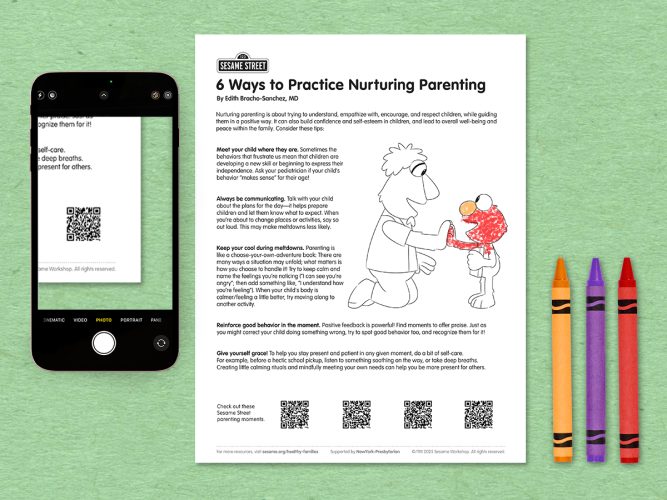
6 Ways to Practice Nurturing Parenting
Tips from a pediatrician on understanding, empathizing with, encouraging, and positively guiding children.
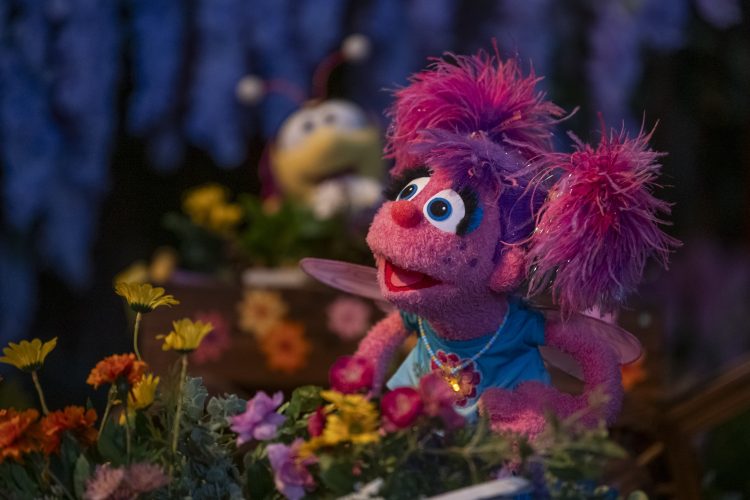
Watch and Play: Abby's Magical Beasties
Watch this episode and explore ways to extend the learning at home.
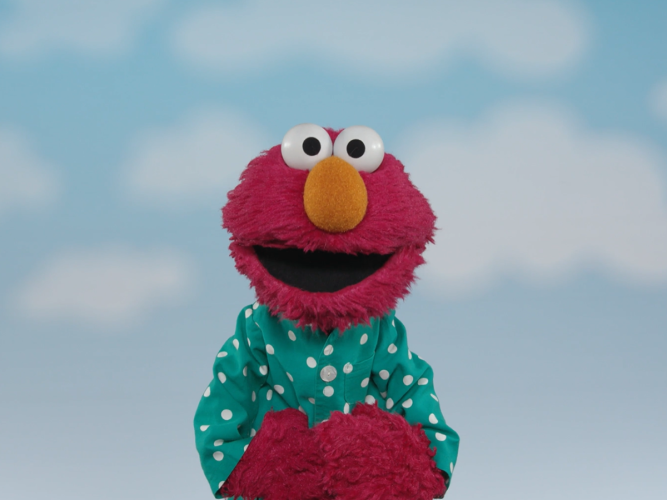
Listen, Feel, and See with Elmo
When children are in the hospital, this mindfulness game can help them soothe themselves.
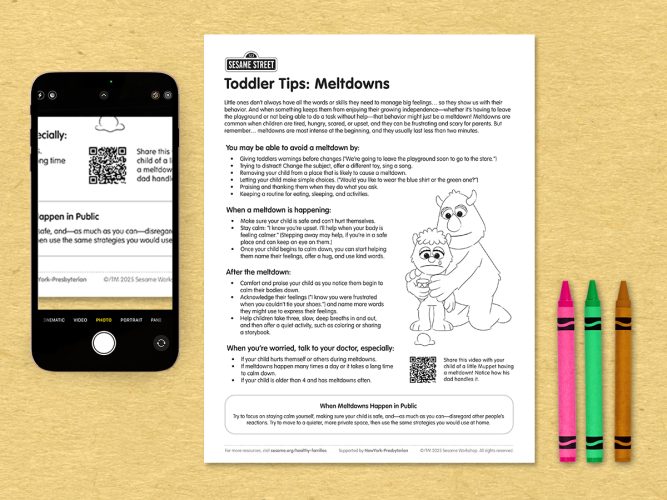
Toddler Tips: Meltdowns
Strategies for during and after a meltdown…and even some ways meltdowns might be avoided.
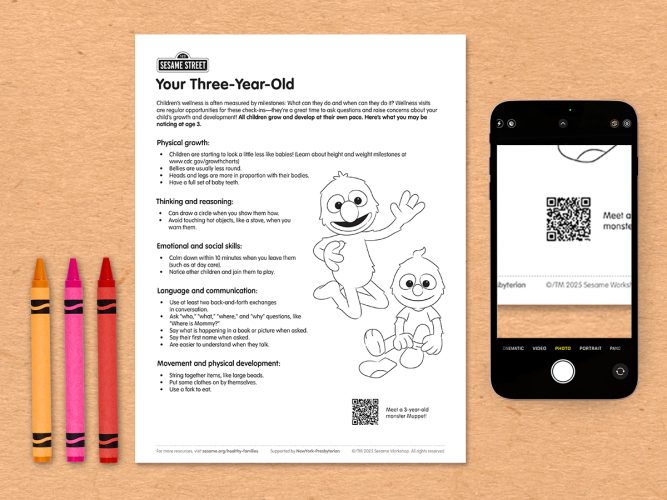
Milestones: Your Three-Year-Old
All children grow and develop at their own pace; use this chart to guide your expectations and observations so you can talk to your child’s pediatrician about questions or concerns.
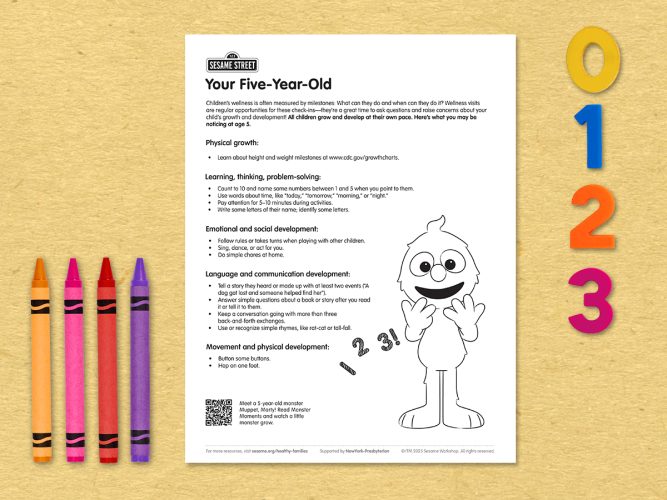
Milestones: Your Five-Year-Old
All children grow and develop at their own pace; use this chart to guide your expectations and observations so you can talk to your child’s pediatrician about questions or concerns.
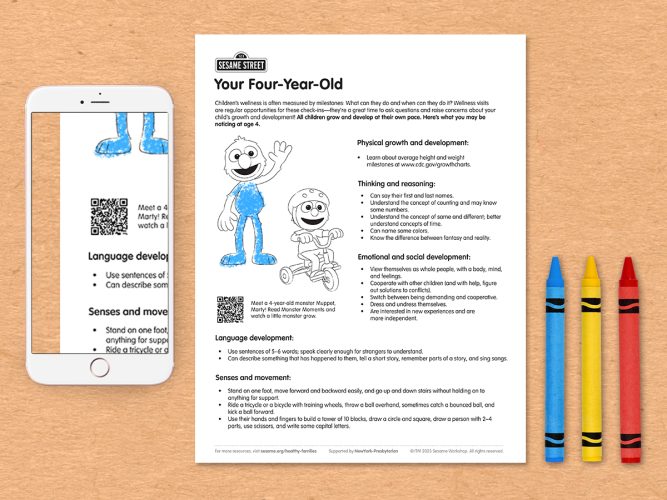
Milestones: Your Four-Year-Old
All children grow and develop at their own pace; use this chart to guide your expectations and observations so you can talk to your child’s pediatrician about questions or concerns.
